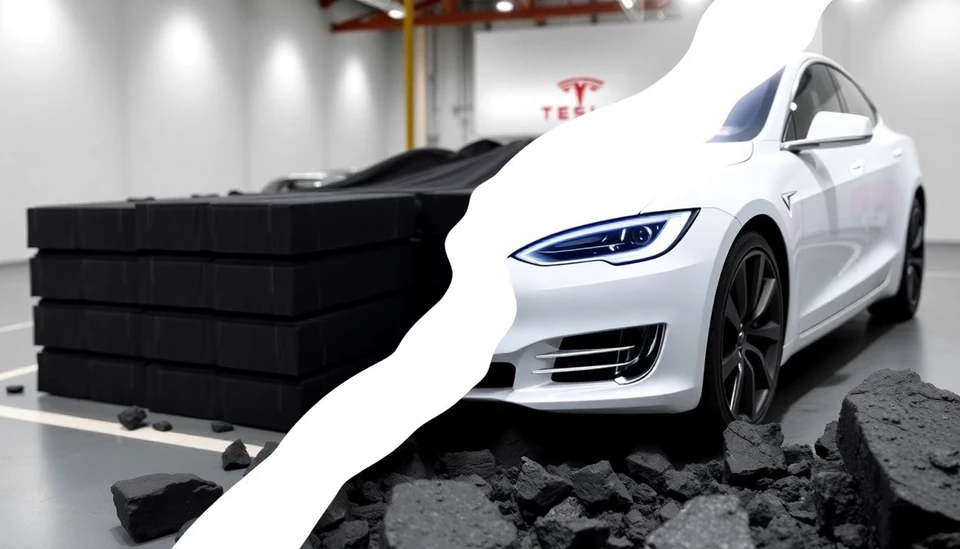
In a significant move to safeguard the domestic electric vehicle (EV) industry, American graphite manufacturers are advocating for a staggering 920% tariff on imported graphite from China. This initiative aims to counteract the monopolization of crucial battery materials and maintain a competitive edge for U.S. companies engaged in the EV market. The steep duty recommendation is rooted in the escalating concerns over supply chain vulnerabilities and nationwide reliance on foreign graphite resources, particularly those originating from China.
Graphite is an essential component of lithium-ion batteries, which power electric vehicles. As the demand for EVs surges—driven by government incentives and a global push for sustainable transportation—the need for reliable sources of natural and synthetic graphite has intensified. The proposed tariff is designed to enhance the viability of U.S. graphite producers, enabling them to scale operations and invest in additional mining and processing facilities domestically.
These concerns are underscored by the recent geopolitical tensions and trade disputes with China, which has dominated the graphite market for years. Chinese companies control a disproportionately high percentage of global graphite production, raising alarms about national security and the stability of the supply chain for critical materials. U.S. graphite producers assert that the proposed tariff would not only discourage dumping of cheap imports but also promote the development of a robust domestic industry that is capable of meeting growing demand.
Industry analysts highlight that the pricing power enjoyed by Chinese suppliers often undermines competition, leading to lower prices that can ultimately harm U.S. companies. As a result, the proposed tariff is seen as a necessary step to level the playing field and encourage domestic innovation and expansion in graphite mining and processing.
Furthermore, the call for the tariff comes as various federal and state initiatives seek to boost domestic mineral extraction in the face of ongoing trade disruptions. The Biden administration has made clear its intention to reduce dependence on China for critical minerals, aligning with broader goals to transition to clean energy technologies. By investing in local resources and imposing protective tariffs, U.S. graphite companies aim to secure their place in a rapidly evolving market while contributing to the nation's goal of energy independence.
However, the proposal is likely to provoke backlash from China, which could result in further trade tensions. Negotiations over tariffs and trade practices will be closely watched as stakeholders from both the U.S. and China assess how these changes might impact the broader electric vehicle market and global supply chains.
As the U.S. grapples with the dual challenges of competition and sustainability, the proposed graphite tariff reflects a crucial intersection of economic strategy, environmental policy, and national security. By taking decisive action to protect domestic producers, American policymakers may be able to fortify the supply chain for EV batteries and cultivate a more resilient industrial landscape for the future.
In summary, the push for a 920% tariff on Chinese graphite imports encapsulates the urgency with which U.S. manufacturers are seeking to maintain their competitive edge in the escalating global EV race. As this discussion unfolds, it will be vital to monitor how both governmental and corporate strategies evolve in response to this critical issue.
#GraphiteTariffs #ElectricVehicles #USManufacturing #ChinaTrade #CleanEnergy #BatteryMaterials #EVSupplyChain #NationalSecurity #DomesticIndustry
Author: Peter Collins

